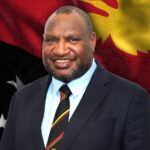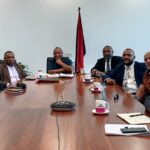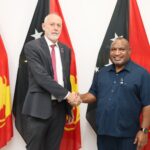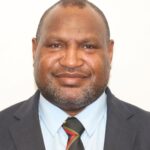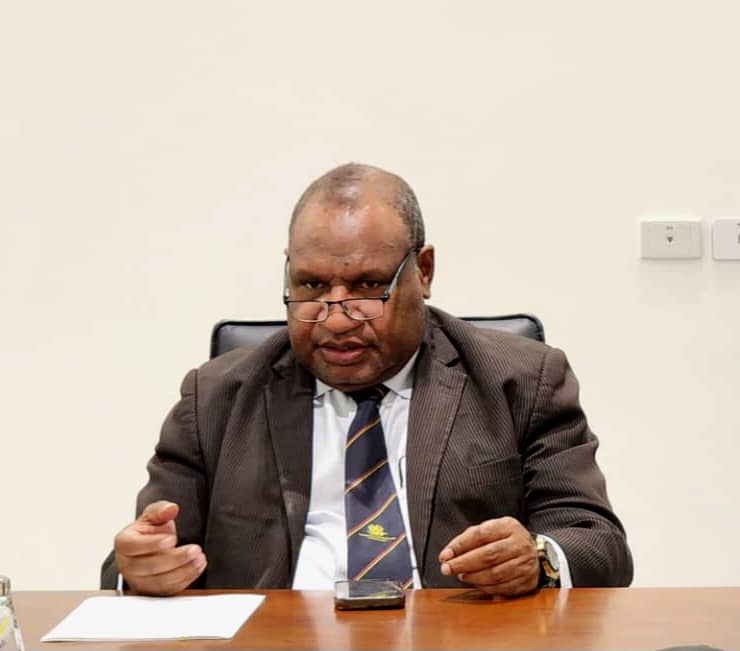Prime Minister Hon. James Marape has issued a strong call for urgent reforms in Papua New Guinea’s State-Owned Enterprises (SOEs), emphasising the need for greater efficiency, self-sustainability, and improved service delivery. He made these remarks following a high-level meeting with State Enterprises Minister Hon. William Duma, Kumul Consolidated Holdings Ltd (KCHL) Managing Director Prof. David Kavanamur, and the leadership of key SOEs, including PNG Power Ltd, Water PNG, Telikom PNG, Air Niugini, and Post PNG.
“Whilst acknowledging the leadership of Minister Duma and the progress made in strengthening state enterprises, it is important to recognise that there remains room for greater precaution and continuous improvement. The government remains committed to ensuring transparency, accountability, and the sustainable management of national assets. In this context, ongoing reforms and strategic initiatives will be pursued to enhance efficiency, governance, and long-term viability in key state enterprises,” Prime Minister Marape said.
The Prime Minister emphasised the critical role of SOEs in national development and challenged their leadership to break free from a cycle of inefficiency and financial dependence on the government. He made it clear that underperforming entities must change their approach or face restructuring.
“The operating environment in 2025 is vastly different from that of 1975. At independence, the government had no choice but to carry the burden of public service obligations because there were no alternative sources of revenue. But today, our SOEs must be able to stand on their own feet. We cannot continue to fund inefficiency,” Prime Minister Marape stated.
Prime Minister Marape emphasised that those appointed to lead SOEs must demonstrate the capability to drive profitability and efficiency. He said that board members and CEOs must possess the technical and strategic skills necessary to transform these entities into commercially viable enterprises. “If you are man enough to be on the board or hold the title of CEO, then you must be man enough to deliver results. The government cannot keep bailing out underperforming companies. We need leadership that will turn things around,” he said.
He further urged SOEs to rethink their strategies and leverage their existing advantages, such as monopoly status, to generate revenue and improve services rather than relying on continuous government subsidies.
“If you have a monopoly in a sector and are still struggling financially, then something is seriously wrong— either with management, operations, or the entire business model. This has to change,” the Prime Minister stressed.
Drawing comparisons to international success stories, Prime Minister Marape pointed to Singapore’s state- owned enterprises as a model that PNG could learn from. He highlighted how Singapore, despite lacking natural resources, transformed its SOEs into globally competitive corporations through strong leadership, sound governance, and strategic partnerships.
“Singapore’s success was not just about leadership at the top but about a strong team of technocrats, bureaucrats, and SOE executives who understood the importance of reform and worked together to make it happen. PNG must take the same approach,” he said.
Prime Minister Marape instructed SOEs to explore innovative financing models such as Public-Private Partnerships (PPP) and Build-Operate-Transfer (BOT) agreements, which allow private investors to participate in infrastructure development and operational management while ensuring long-term sustainability.
“We must move away from the traditional reliance on government funding and embrace alternative financing models. PPPs and BOT arrangements can bring in private capital, expertise, and efficiency without burdening the government’s budget,” he said.
He further urged SOEs to embrace modern technology, including artificial intelligence (AI) and smart systems, to enhance efficiency, cut costs, and improve service delivery.
The Prime Minister singled out PNG Power Ltd as the most pressing concern, calling it the “sickest” of the SOEs due to ongoing financial losses and operational inefficiencies. He directed its leadership to conduct an urgent review of its financial position and present a strategic turnaround plan by March 2025.
“PNG Power is struggling while many districts are looking at developing their own power generation models. If we do not fix this soon, the government will be forced to make some tough decisions,” he warned.
Prime Minister Marape reminded SOEs that the government has invested heavily in their operations, injecting over K500 million in funding over the past five years. He made it clear that this level of financial support is unsustainable without measurable improvements.
“The government has been patient, but we will not continue to pour money into SOEs if they cannot demonstrate a path to profitability and improved service delivery. The time for excuses is over,” he said. The Prime Minister urged SOEs to fast-track their reform efforts and adopt a results-driven approach. He warned that those unable to meet performance expectations would face leadership changes and possible restructuring.
Closing his address, Prime Minister Marape reaffirmed his vision for SOEs to become a driving force behind PNG’s economic development. He urged executives and board members to step up, think boldly, and act decisively to secure the future of these critical national assets.
“We are not here to maintain the status quo. We are here to transform our economy and deliver results for Papua New Guinea. Every one of you sitting in this room has a responsibility to make a difference,” he concluded.


